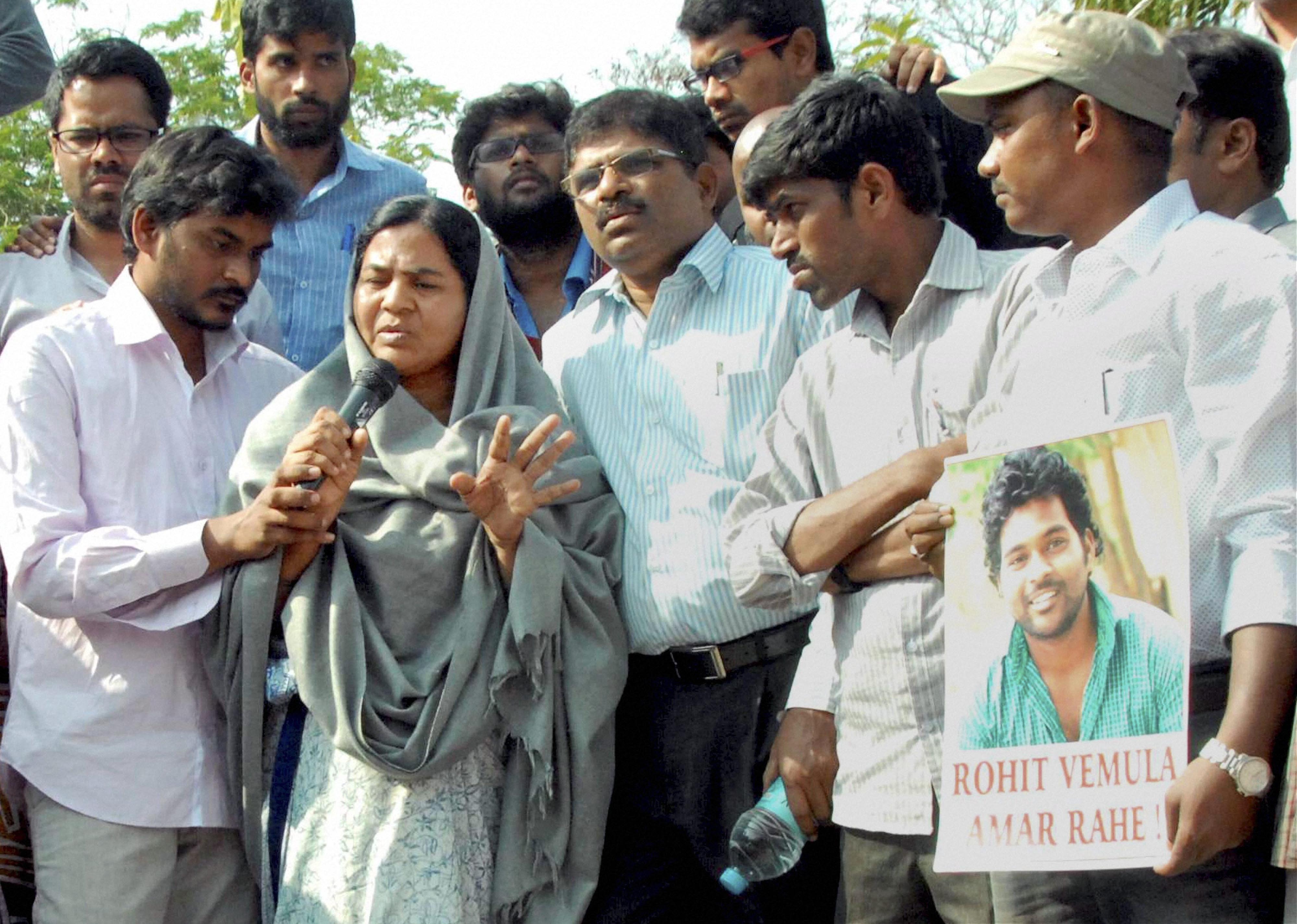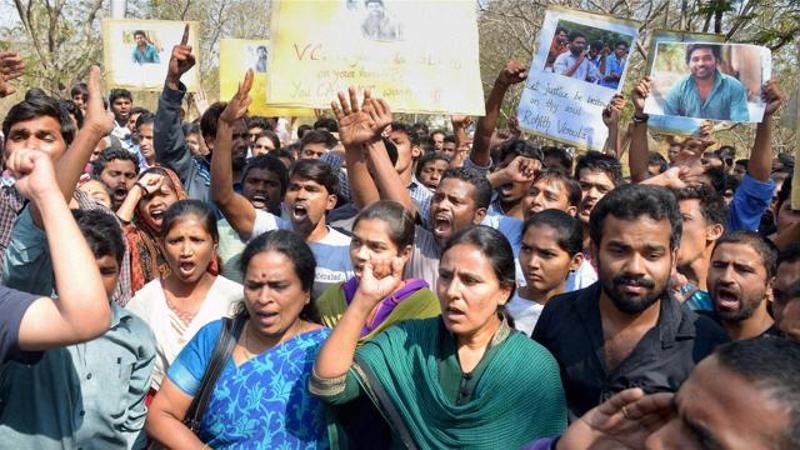What Are Exoplanets And How NASA Detects Life Beyond Our Solar System
Bharti Airtel Set To Acquire Telenor India Within This Year
Google Celebrates NASA’s Discovery Of Seven Earth-Like Planets With An Animated Doodle
Some Home Remedies That Might Sound Bizarre But Actually Work Like A Charm
Akshay Kumar Feels He Has Made Enough Money, Now Wants To Focus On Content & Characters
Delhi ATM Dispenses Fake Rs 2000 Notes From ‘Childrens Bank of India’ With ‘Churan Lable’
Adolf Hitler’s Personal Telephone During World War II Is Up For Auction In The US
From Salman Khan To Rekha, Neil Nitin Mukesh’s Wedding Reception Was Quite A Starry Affair
Here Are Five Reasons Why Vemula’s HCU Deserves As Much Attention As Kanhaiya’s JNU
Universities in India are the new battlegrounds for security agencies to show their muscle these days. They are no longer places where students engage in learning. The statement might seem an overreaction but the two recent incidents - at Jawaharlal Nehru University and Hyderabad Central University - illustrate the point well. What happened at JNU is nothing as compared to the way HCU students were treated by the police. It was only the sleuths of Delhi Police who picked up JNU students' union president Kanhaiya Kumar from the campus, but in the case of HCU, the Telangana government sent down columns of police, Rapid Action Force (RAF) and Central Reserve Police Force (CRPF) to tackle some few hundred students who were protesting outside the lodge of Vice-Chancellor. Yes, there was violence and vandalism but it hasn't been established till now who did it, since a group of students from Akhil Bharatiya Vidyarthi Parishad (ABVP) and pro-VC non-teaching staff of the university was already present at his lodge. The students were beaten up, girls were dragged by hair, touched inappropriately, abused and then some three dozen students including two professors were whisked away in a police van, with no information on them for days. While analysts and critics are linking the crackdown on politically active universities with the larger trajectory of right-wing's assault on redefining the meaning of nationalism and other issues in the country, there's an outright difference visible in the response the two incidents have generated from public. And that silence is criminal.
Here are five reasons why HCU also deserves support like JNU
This was not enough. After police assault came the turn of non-teaching staff who not only blocked supply of food and water to some 5000 students on campus but also ensured there was no electricity and internet. When some students tried to organize open kitchens in the campus, they were beaten up. One of them ended up in an ICU after police thrashed him inside the campus. Delivery boys from nearby restaurants were not allowed to enter the campus. It was a complete blackout. Police is still on campus. Media too was restricted at gates.
Secondly, the location of university. The fact that JNU is in New Delhi kept the issue burning. It was easier for the Left and other critics of the right-wing to cobble up a co-ordinated resistance and mobilisation against the state's crackdown.
Thirdly, the HCU issue is in essence a Dalit issue. And it has less saleability than who's nationalist and who's anti-national? In other words, debating the suicide of a Dalit scholar will never qualify for a prime-time slot.
Fourthly, even when JNU issue was centered on 'anti-national' debate, there was undeniably a casteist angle to the way JNU amassed solidarity from all over the country. Be it upper-caste professors, high-position holding JNU alumni, JNU diaspora in the west, anti-Right media or the fame of JNU as an institution, all of it acted as a support for the widening the scope of JNU resistance. HCU, in contrast, seems forgotten.
Lastly, the entire JNU crisis projected a student leader from a poor background who articulated a view of India's deprived masses. He was talking about general issues. HCU, on the other hand, had a Vemula but now, their cause is simple and to the point - they want VC Appa Rao Podile to step down. There is no mass appeal but that doesn't mean they are wrong.






